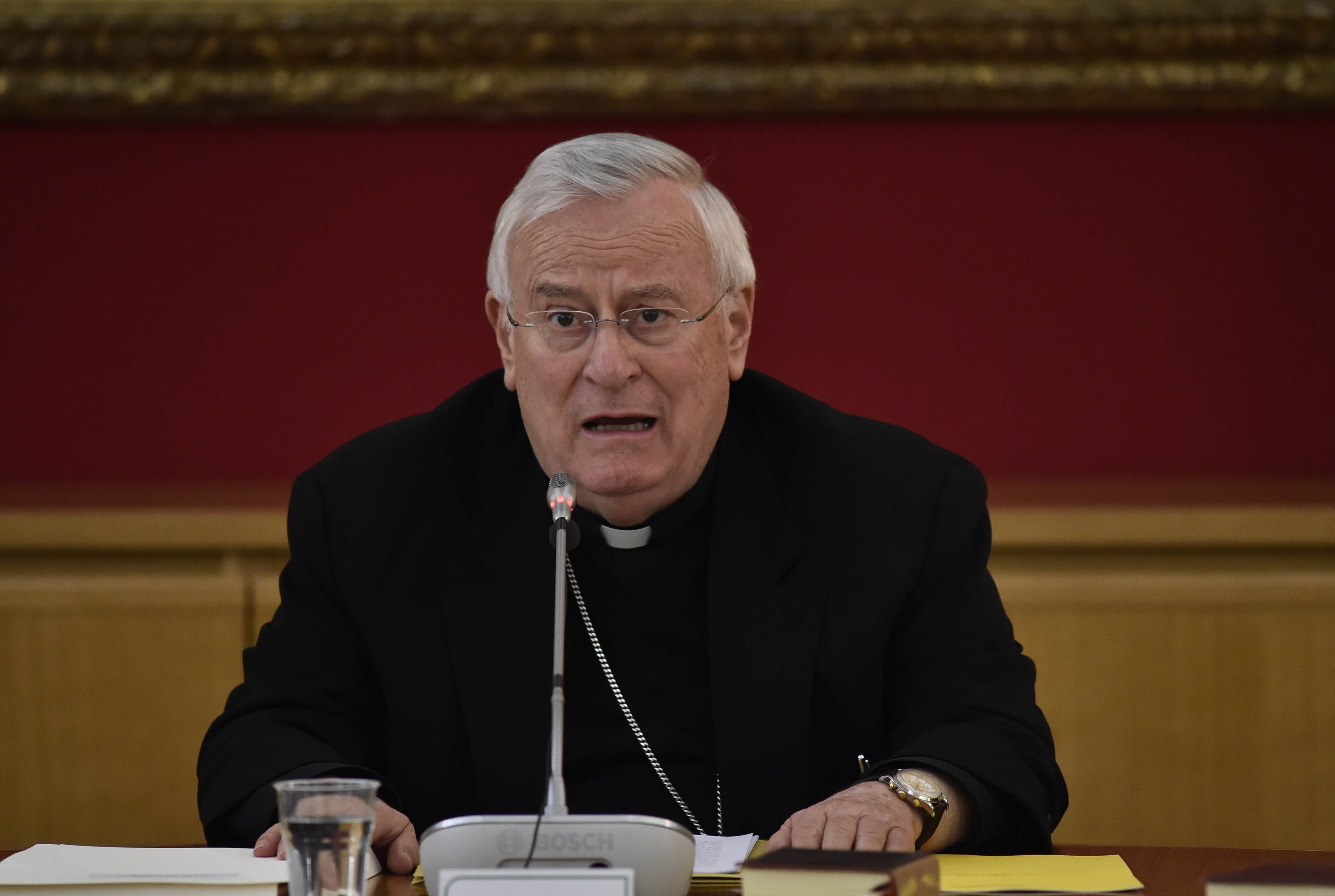Permanent council
The CEI President opened the prolusion of the Permanent Council with three verbs directed at the political realm, that it may recover its noblest dimension starting with the common good. His Eminence called upon candidates in the upcoming national elections to act with sobriety and upon citizens to cast their votes. Migration, anti-Semitism and xenophobia, employment, family, school, peace in the Mediterranean, are the topical issues

Three imperatives – “to rebuild hope, to repair the Country, to pacify society” – to recover the noblest dimension of political life, starting with the lucid courage of calling reality by its name and focusing on the common good. In fact, engaging in politics is a vocation, not a “springboard to power.” It was the heart of the Prolusion by Cardinal Gualtiero Bassetti Archbishop of Perugia-Città della Pieve, CEI President, delivered at the Permanent Council, ongoing in Rome until January 24. “Uniting the ecclesial community, uniting the Country: from Lampedusa to Aosta, from Trieste to Santa Maria di Leuca” is His Excellency’s appeal, which for Catholic politicians implies the ability to live politics as gratuitousness and service, acknowledging the past to build the future, relentlessly caring for the poor and for life. The President of Italian bishops – who repeatedly quoted from Paul VI – addressed issues of urgent topical relevance – migration, anti-Semitism and xenophobia, employment, family, education, peace in the Mediterranean – and ahead of the upcoming national election called upon citizens to cast their vote and invited candidates to act with sobriety. “It’s immoral to make promises knowing that they can’t be kept”, and “it’s equally immoral to speculate on people’s fears”, he said.
“To rebuild, to repair, to pacify”: three verbs to be reformulated, stemming from the ancient wisdom of the Book of Qoélet.
The moral emergency is “to rebuild what was destroyed”, the heritage of a beautiful, fragile Country, as those who lost everything in the earthquake are well aware of. The “spiritual emergency” “is to mend what was torn apart”, the ecclesial community and the Country. The social emergency is “to pacify what is cause of contention”, in a Country where social recrimination continues to prevail.
“We must react to a ‘culture of fear’ which, although in some cases it may be comprehensible, must never turn into xenophobia or evoke statements on race that we believed belonged to a bygone past.”
It’s the part of the prolusion dedicated to migrations. “The situation does not improve by shutting the door”, the Cardinal pointed out, echoing the words of Pope Francis on the Day of Migrants and Refugees: “having doubts and fears is not a sin”, the sin “is to allow these fears to determine our answers” in a political climate that fuels misunderstandings, ambiguities and discord.
“The poor, all the poor, even strangers whom we know nothing of, belong to the Church by evangelical right”, the cardinal recalled quoting from Paul VI: “by virtue of this evangelical right – and not in the name of a social demand – every Christian is called to walk towards them with an attitude of understanding and compassion.”
“Anti-Semitism is unacceptable”; “we are spiritually Semites.” Those were the courageous words of Pius XI against racism reiterated by the CEI President and by the Populorum progressio. Italy is a virtuous example in this respect, Bassetti said thanking Francis for the words of gratitude towards our Country in his recent speech to the Diplomatic Corps.
“Better jobs, jobs for all”
For the Italian Church – Bassetti said thanking President Mattarella for having defined labour a priority in his end-of-year speech – this is the goal to face a veritable “social emergency, that has grown all the more urgent as a result of youth unemployment.”
The cry of suffering of young people, the new migrants, must be “received and assimilated”: it’s the promise for the next Bishops’ Synod.
The Social Weeks of Cagliari brought to the fore a set of concrete proposals on labour: a positive experience that should not be wasted but strengthened and developed, bearing in mind the goals that need to be achieved: “Creating employment, fighting precariousness and making labour compatible with family life and rest.”
“If families stop, also the social engine of the Country stops. The heart of society stops beating.”
“To help, to care for and support Italian families in every way” is the only cure, Bassetti said, defining the “pact for birth-rate” proposed by the Family Forum a positive step that received full consensus by all party members.
“As bishops we join in the appeal of the Head of State to overcome all causes of mistrust and disaffection and go to the polls with a sense of responsibility towards the national community.”
It’s the appeal of the Italian Church for the upcoming political elections. Card. Bassetti recalled “the moral and democratic value of voting”, underlining that “the Church is not a political party and she does not reach agreements with political representatives.” “Dialoguing, not negotiating”, is the course indicated by Romano Guardini, Paul VI and Pope Francis.
“Sobriety, in words and behaviour”,
is the appeal for the election campaign. The compass of all candidates must be the sincere quest for the common good, not in words but in facts. Education is one of the areas deserving special commitment, of “which state-authorized schools are an integrating, qualified part.”
“Live politics with gratuitousness and spirit of service. Acknowledge the past to build the future. Show relentless care for the poor and for life.” These are the three indications to Catholics in political life with which the Cardinal concluded his prolusion. “Life must not be killed, bought, exploited, or hated!” the Cardinal affirmed also with regard to the advanced healthcare Directive. The Permanent Council, the President said, will address, inter alia, a proposal that “within a truly European horizon is aimed at giving renewed thrust to the commitment for peace in the Mediterranean region.”